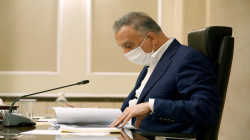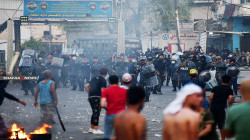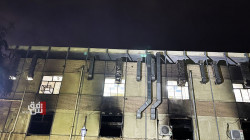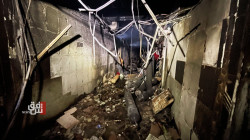Negligence and disagreements set Ibn Khatib Hospital on fire
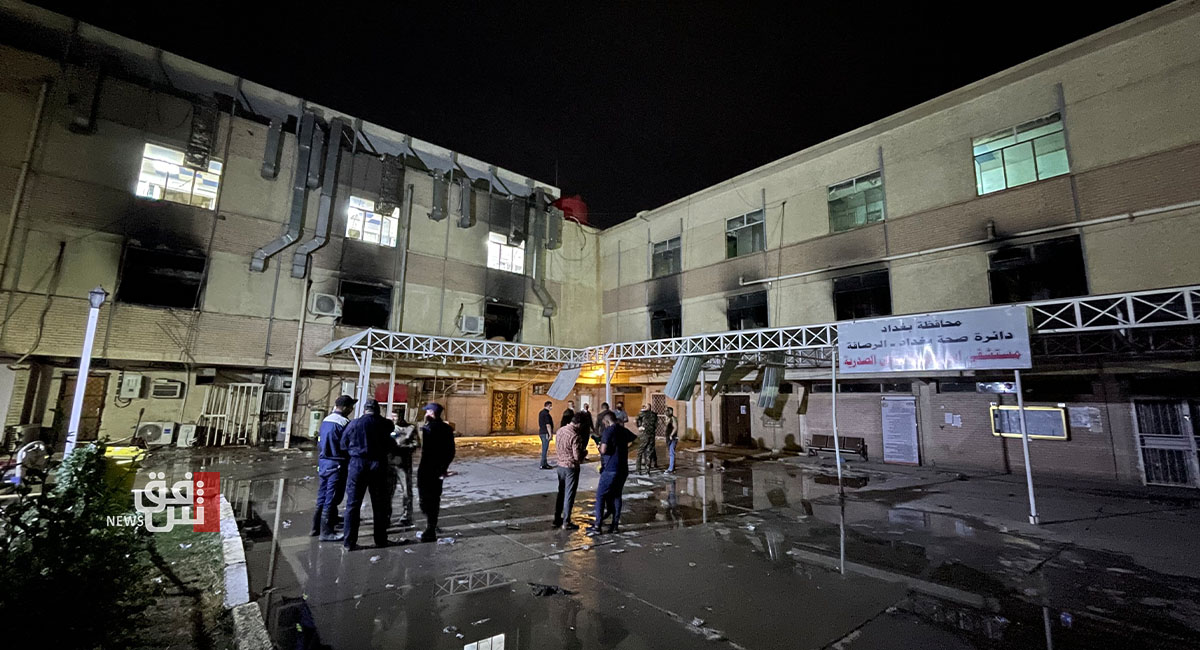
Shafaq News / "Do not pin it on the short circuit", said Iraqi Prime Minister Mustafa al-Kadhimi, cutting the way on whoever wants to make excuses for the fire that engulfed the Ibn Khatib Hospital. So, do negligence and political differences play a role in setting fire to Iraqi state institutions?
Specialists linked repeated incidents to political differences that usually intensify ahead of any elections. At the same time, there is a near consensus among the public opinion that that impeachments and investigation commissions will do a little effect in resuscitating the ever-deteriorating healthcare system.
The tragic fire at the Ibn Khatib Hospital, which killed dozens of people, was not the first and certainly would not be the last. The issues of health institutions in Iraq have not been addressed since 2003 despite the enormous influx into the state treasury and the significant allocations made to the Ministry of Health by successive governments.
Fires in government and commercial institutions have become common in Iraq, which the authorities usually attribute to "short circuit" due to poor maintenance.
Many fires had broken out in official institutions, commercial complexes, and health centers, causing significant damage. However, this was the first time a fire had broken out in a hospital, leaving many casualties.
Arson at al-Yarmouk Hospital's NICU
In mid-August 2016, 13 infants were killed, and three others suffered severe asphyxia because of a fire at al-Yarmouk Hospital, one of Baghdad's largest healthcare centers. Authorities initially said that the fire was due to a short circuit, then quickly acknowledged that it was an act of arson.
A spokesperson for the Iraqi Ministry of Health said at the time that the agencies in charge of the investigation found "flammable material at the scene". Extinguishing the fire that gutted the entire Neonatal Intensive Care Unit (NICU) took three hours, while the security committee in parliament reportedly arrested eight suspects.
The same hospital experienced a fire earlier in mid-May, but there were no injuries.
The Ministry of Health stated back then, "the Gynecology ward where the fire broke out is a group of corridors and an old single-floor building. It is not a pediatric ward. However, there is a NICU for cases that need to be admitted for operations and deliveries".
In February 2021, a fire broke out at the Medical City Hospital in Baghdad, causing extensive damage. According to a security source, "The fire broke out inside the Medical City Hospital, causing material damage to appliances and buildings".
In December 2019, a fire broke out inside al-Hussein General Hospital in Karbala. In August 2020, the governor launched an immediate investigation into the cause of a fire at the Turkish hospital in the governorate.
Struggling projects
The Turkish hospital project is executed by The Turkish "Universal Acarsan" company as part of the Ministry of Health's investment plans for 2008 at 150 million dollars and a 33-month implementation period. The project was launched on January 7, 2009, assuming it was completed in 2011 to accommodate 492 beds. Still, it is nowhere near completed.
Specialists pointed out that successive governments since 2003 have failed to build health institutions worthy of the population and referrals, as the existing facilities - most of which had been built decades ago - lack periodic inspection.
The lack of emergency fire exits also contributes to putting the public at risk. It has been noted that the companies that built and supplied the hospitals do not adhere to specific criteria.
Observers also pointed out the lack of a building safety system, including installing several fire extinguishers and devising security safety guidelines.
Health and public institutions in Iraq also lack the installation of automatic warning systems in buildings, similar to what is used in most countries around the world.
Former Minister of Health: Diagnosis is more important than failures
Former Iraqi Health Minister Dr. Aladdin Al-Alwan, who resigned in September 2019, referred to the deterioration in Iraq's healthcare sector in a report published in Baghdad in May 2019 entitled "The Health Situation in Iraq..Challenges and business priorities".
In his report, Al-Alwan noted that the poor distribution of medical capacity to Iraqi governorates and their concentration in specific areas have contributed to the deterioration of the healthcare structure over many years.
He also noted that financial corruption and misuse of funds had played a major role in weakening health services. Similarly, poverty has played a role in the citizens' ability to spend enough money for treatment.
Al-Alwan wrote in his four-page resignation letter: "My work is surrounded by many obstacles put in place by political interventions, pressures, as well as interests that conflict with the change I made in the ministry. Those who do not want to improve the healthcare sector resorted to defamation in the media and social media pages. I have reached a firm conviction that it is not possible to continue working in these circumstances". In addition, the minister informed the prime minister that Iraq's healthcare sector development needs at least 2 billion dollars worth of investments.
It is well known that a large segment of Iraqi doctors has migrated to other countries due to the ongoing wars in Iraq over the years and the spread of government corruption. They currently hold high positions in several Western countries. At the same time, the Iraqi health authorities face censure for their failure to reform the healthcare system and attract Iraqi competencies working abroad to benefit from their expertise in reforming and developing this area.

